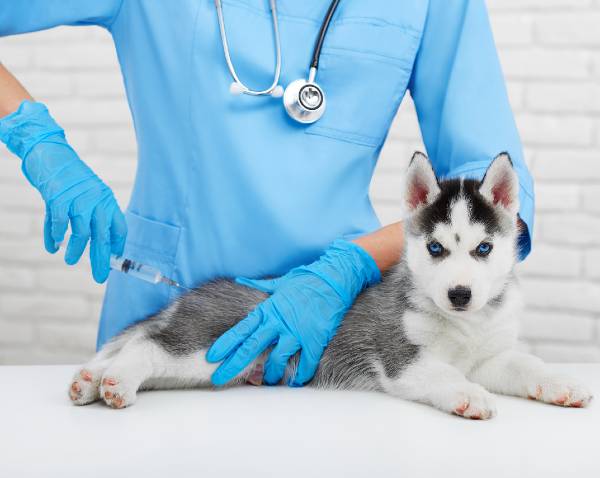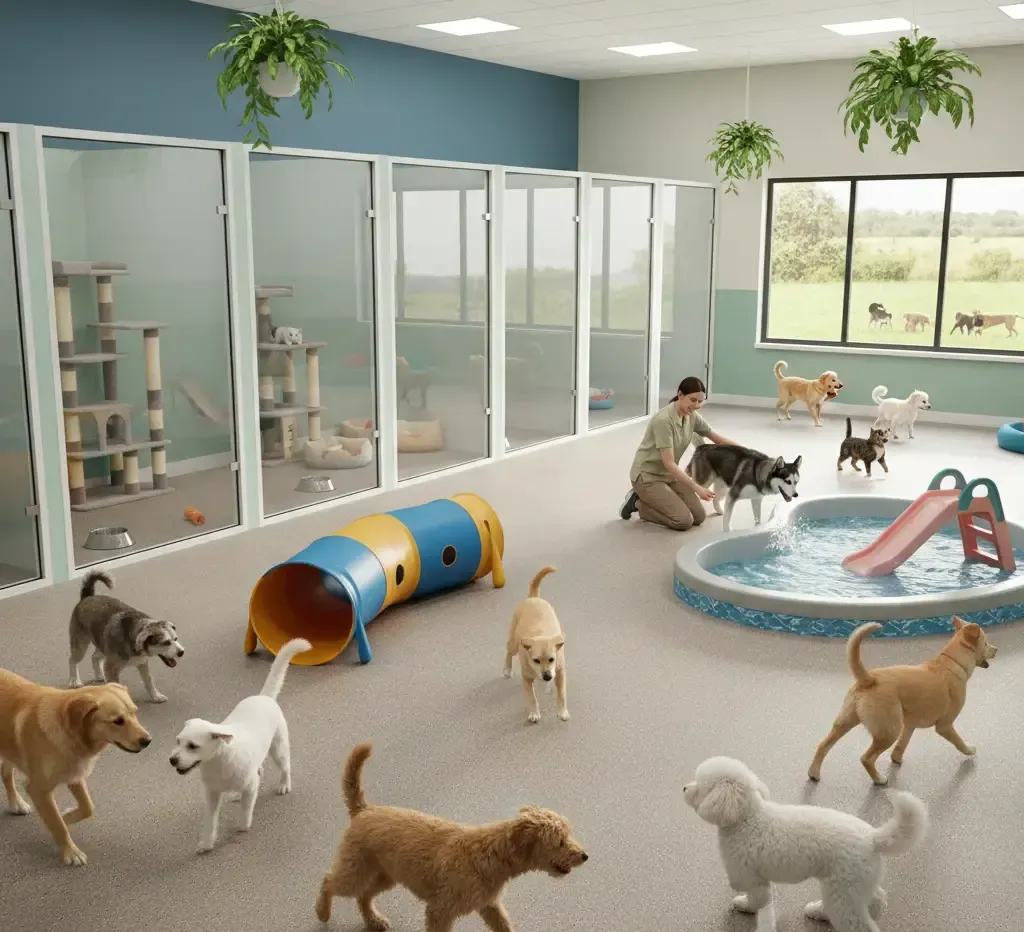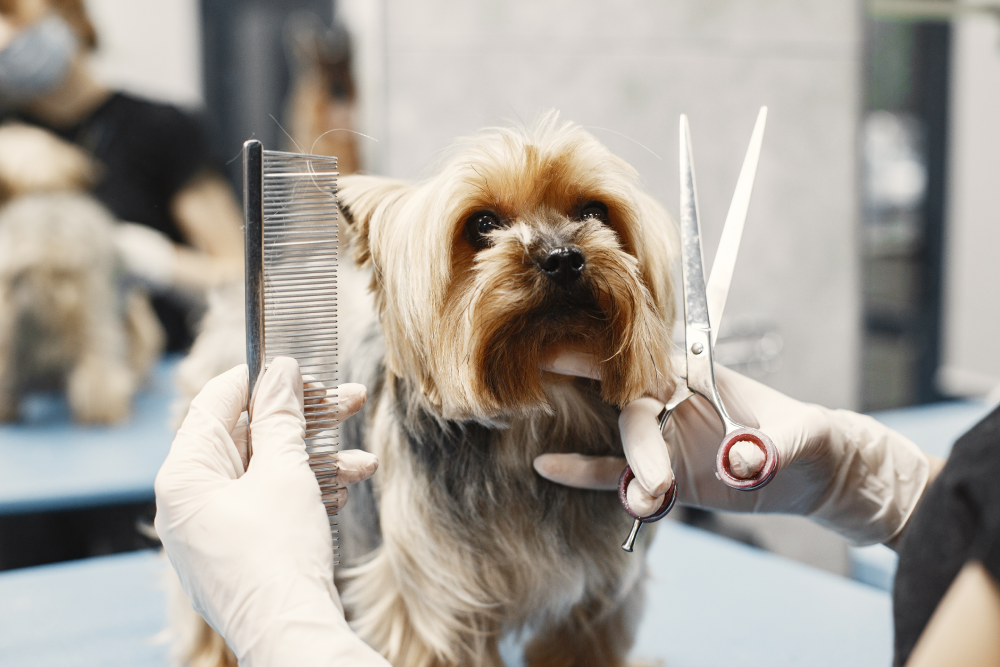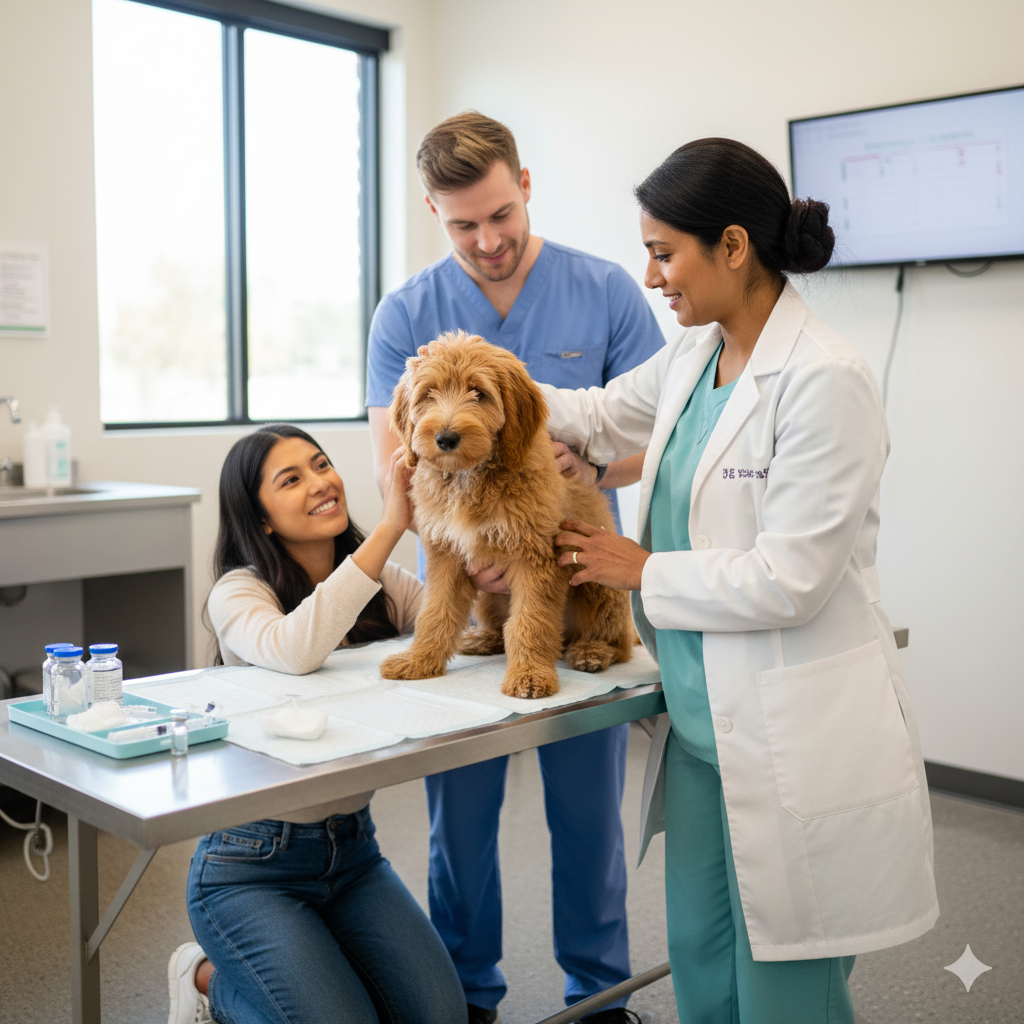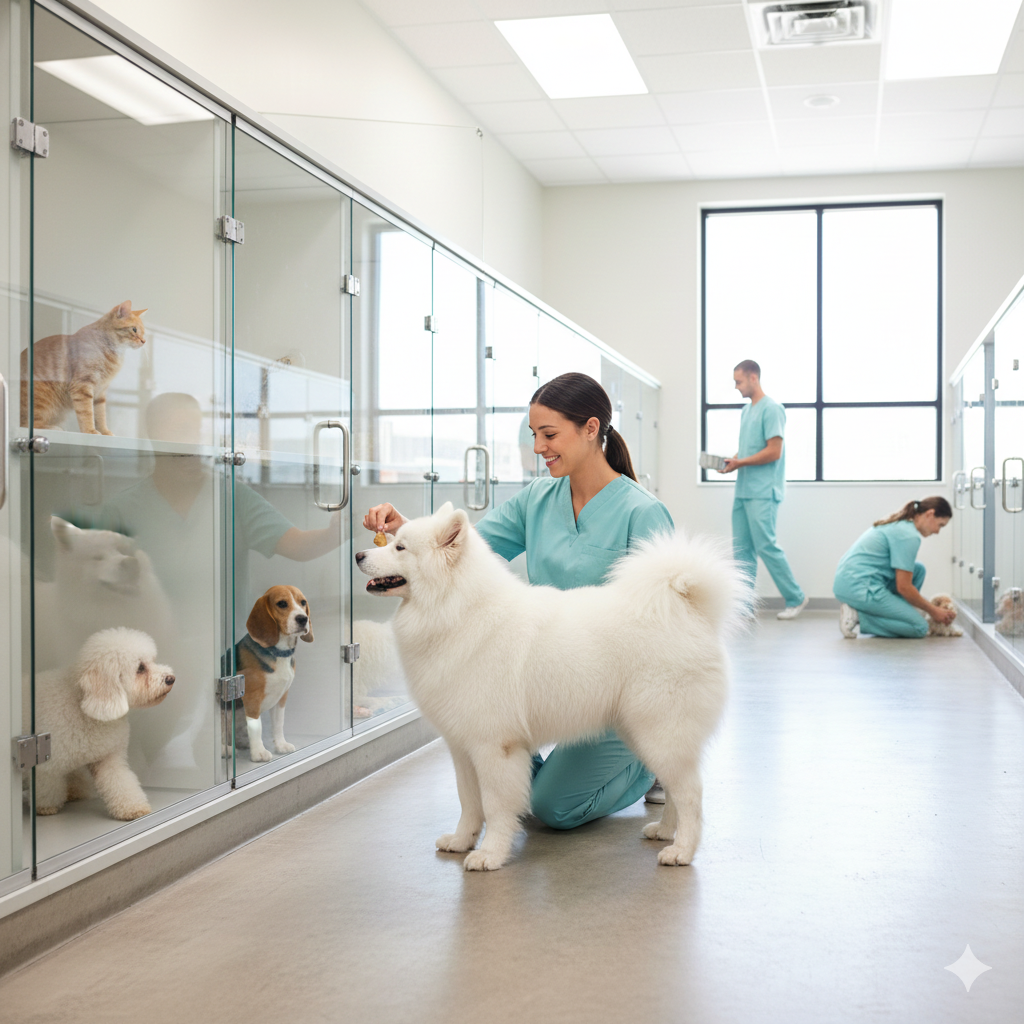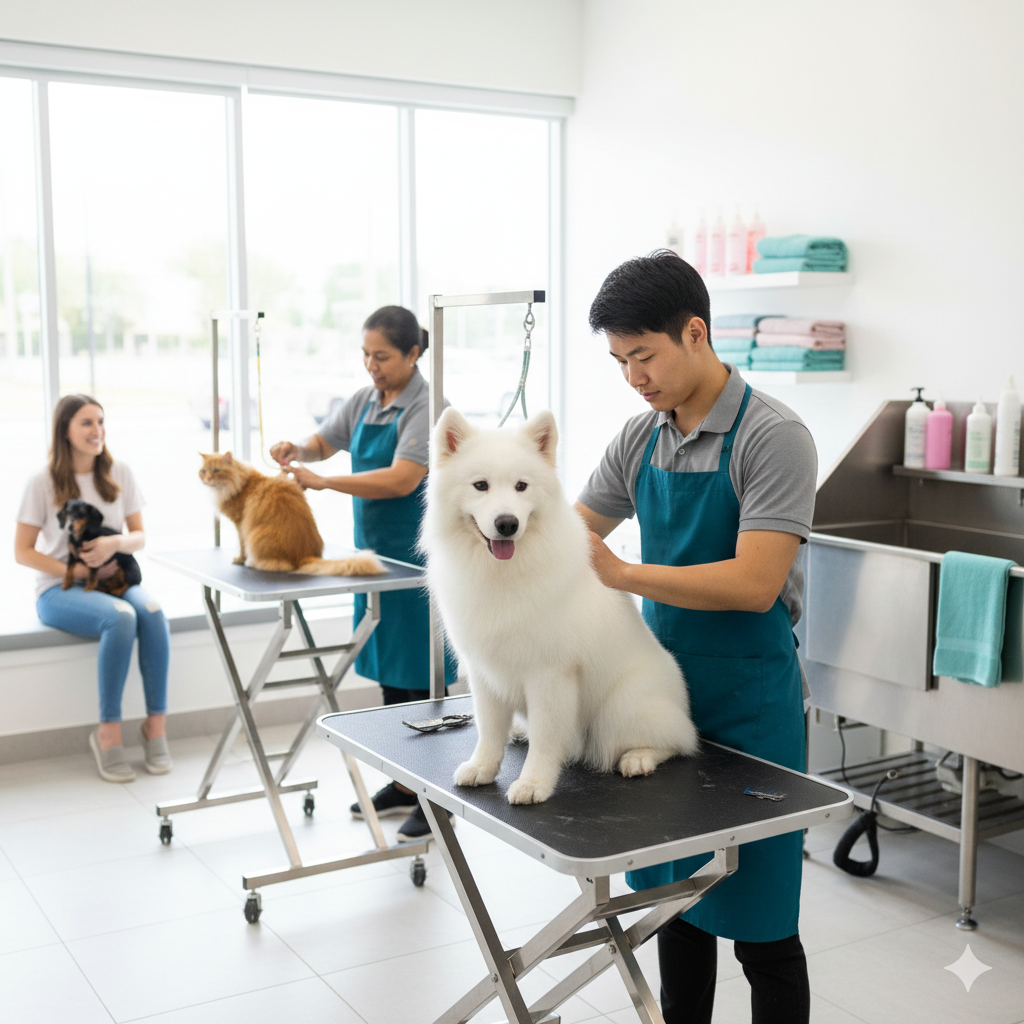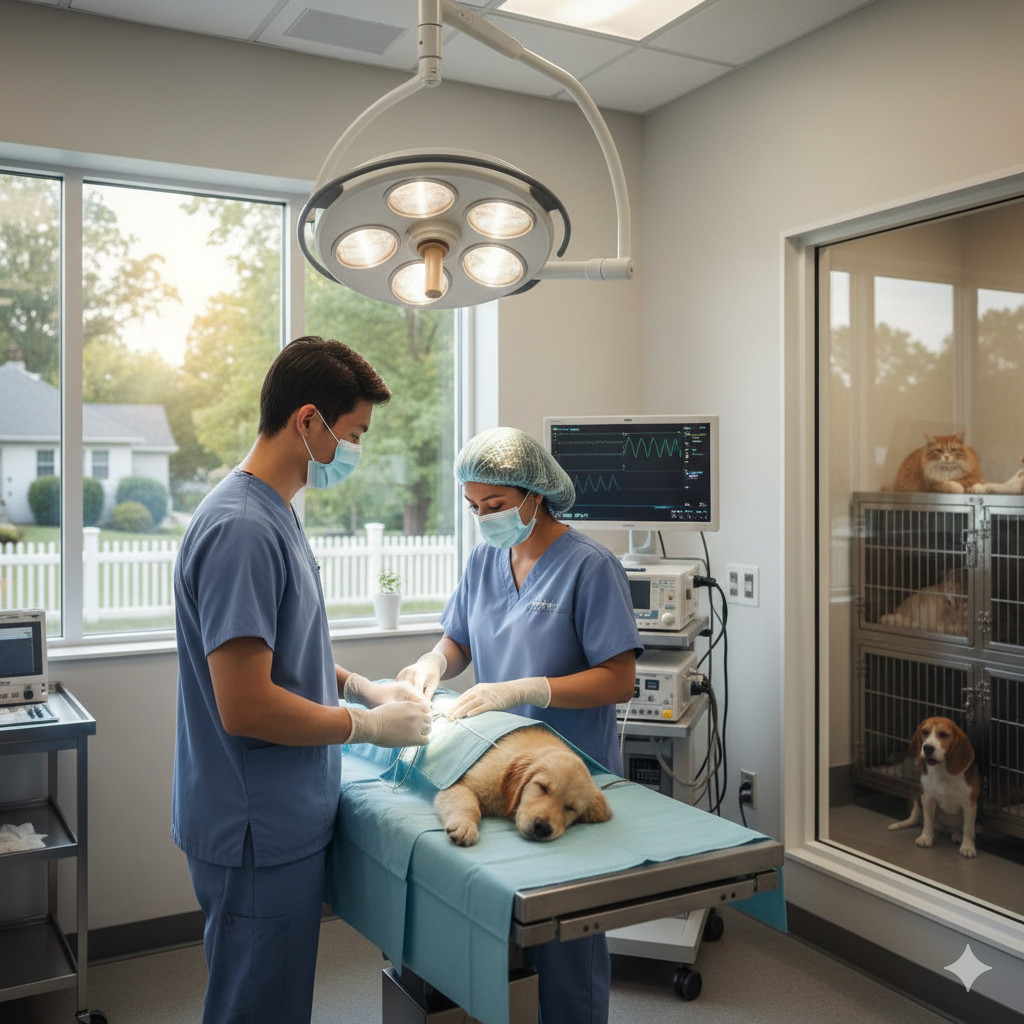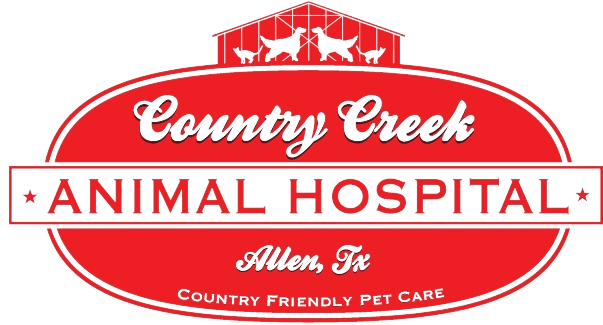By Michael Rayburn
•
January 12, 2026
When we think of pet grooming, the mind often wanders toward aesthetic charm—the perfectly fluffed Poodle, the neatly trimmed Yorkie, or the fragrant scent of a freshly bathed Golden Retriever. However, for the discerning pet owner in Allen, TX , grooming has evolved far beyond the boundaries of vanity. As we navigate the environmental challenges of 2026 , professional grooming has established itself as a front-line defense in preventative veterinary medicine. At Country Creek Animal Hospital , we approach every session not just as a haircut, but as a comprehensive wellness assessment. The skin is the largest organ of the body, and for our canine and feline companions, it serves as a critical barrier against the unique allergens and climate fluctuations of North Texas. Expert Pet Grooming is the practice of maintaining this barrier, identifying subtle physiological changes before they escalate into medical crises, and ensuring that your pet’s external health mirrors their internal vitality. 1. The North Texas Environment: A Challenge for the Canine Coat Living in the Collin County area presents a specific set of dermatological hurdles for our pets. Our geography is defined by high pollen counts, intense UV exposure, and a humidity index that can fluctuate wildly. These factors directly impact the health of a pet’s coat and skin. Seasonal Allergies and Atopy In Allen , we see a significant number of pets suffering from environmental allergies. Pollen, ragweed, and local grasses don't just affect a pet’s respiratory system; they settle deep within the fur and migrate to the skin. Without Expert Pet Grooming to mechanically remove these microscopic irritants, pets develop atopic dermatitis. Professional bathing using high-grade, pH-balanced medicated shampoos is essential to strip away these allergens without depleting the skin’s natural lipid barrier. The Humidity-Bacteria Connection The moisture in the Texas air provides a perfect incubator for yeast and bacterial overgrowth, particularly in "high-friction" areas like the armpits, groin, and paw pads. When a coat becomes matted or excessively thick, airflow to the skin is restricted, creating a stagnant environment where infections flourish. A professional groomer understands the "physics of the coat," utilizing thinning shears and specific clip lengths to maximize cutaneous respiration (skin breathing). 2. The Anatomy of a Professional Grooming Assessment What differentiates a home bath from Expert Pet Grooming is the systematic medical oversight involved in the process. At Country Creek Animal Hospital , our grooming protocols are designed to catch anomalies that often go unnoticed by owners during daily snuggles. Digital Palpation and Lump Identification During the "hand-stripping" or deep-lathering phase, a groomer’s hands move over every square inch of the pet's body. We are trained to feel for "sebaceous cysts," "lipomas," or more concerning "mast cell tumors." In the older pet population of 2026 , early detection of these growths is often the difference between a simple excision and a complex oncological event. Otic Health (Ear Care) Many breeds, such as Spaniels and Doodles, are prone to chronic otitis externa (ear infections). Part of our grooming services involves inspecting the ear canal for discharge, odor, or excessive hair growth that traps moisture. By maintaining clean, dry ears, we prevent the deep-seated infections that can lead to vestibular issues or the need for total ear canal ablation (TECA) surgery. 3. Matting: More Than a Cosmetic Nuisance One of the most misunderstood aspects of pet care is the danger of matting. To the untrained eye, a mat is just a clump of hair. To a veterinary professional, a mat is a localized health hazard that can cause significant pain and tissue damage. The "Tourniquet Effect" Severe mats, especially those near the limbs or tail, can actually wrap around an extremity and restrict blood flow. This "tourniquet effect" can lead to skin necrosis (death of the skin tissue). Furthermore, mats pull tightly against the sensory nerves of the skin, causing a constant state of discomfort that can manifest as irritability or "aggression" in otherwise friendly pets. Hidden Parasites and Hot Spots Mats serve as a sanctuary for fleas, ticks, and chewing lice. Because the hair is so densely packed, standard topical preventatives may fail to reach the skin surface within a mat. Additionally, the lack of airflow causes "hot spots" (acute moist dermatitis), where the skin literally begins to rawly decompose under the hair. Expert Pet Grooming involves the careful, safe removal of these mats using specialized blades, often saving the pet from the need for sedation and medical debridement. 4. The Podiatry of Grooming: Nails and Paw Pads The paws are the primary interface between your pet and the harsh Texas pavement. Neglecting paw health can lead to long-term orthopedic complications. The Biomechanics of Nail Length When a dog’s nails are too long, they hit the ground with every step, pushing the nail back into the nail bed and shifting the alignment of the digital bones. This forces the pet to alter their gait, putting undue stress on the carpal (wrist) joints and eventually the hips and spine. Regular nail trimming or dremeling is a fundamental component of orthopedic maintenance. Interdigital Health The spaces between the toes are frequent sites for "interdigital cysts" and "foxtails" (dangerous grass seeds common in North Texas fields). During an Expert Pet Grooming session, we clear the hair from the paw pads, which not only allows for a thorough inspection but also increases the pet’s traction on hardwood floors—a critical safety factor for senior pets living in modern Allen homes. 5. Feline Grooming: The Unique Needs of the Sophisticated Cat While dogs are the most frequent visitors to the grooming salon, cats have a profound biological need for professional coat management, especially as they age. The "Greasy Tail" and Glandular Issues Cats have specialized sebaceous glands, particularly at the base of the tail. If these glands overproduce, the hair becomes matted and the skin becomes prone to "feline acne" or painful infections. Professional degreasing baths are essential for long-haired breeds like Persians or Maine Coons to prevent these dermatological complications. Senior Felines and Self-Grooming As cats develop arthritis, they often lose the flexibility required to groom their hindquarters and spine. This leads to the buildup of "dander" and the formation of thick, painful mats. Our Homepage highlights our commitment to gentle, low-stress handling, which is particularly vital for senior cats who may be fragile but require the hygienic intervention that only a professional can provide. 6. The Psychological Impact of Grooming: Stress and Socialization In 2026 , we recognize that a pet’s mental state is just as important as their physical health. Professional grooming, when done correctly, is a social and sensory experience that can improve a pet's confidence. Desensitization and Touch Pets that are groomed regularly from a young age become desensitized to being touched in sensitive areas—the paws, the ears, and the mouth. This makes them much more "compliant" during veterinary exams and reduces the stress they feel when handled by strangers. This behavioral conditioning is an underrated benefit of Expert Pet Grooming . The "Feel Good" Factor There is a noticeable shift in a pet’s demeanor after a professional grooming session. Removing the weight of dead hair, the itchiness of dander, and the discomfort of long nails results in a "post-grooming zoomie" phase that reflects an immediate improvement in their quality of life. A clean pet is a comfortable pet. 7. Shedding Management: The "De-Shedding" Science Every Allen homeowner knows the struggle of pet hair on furniture and flooring. However, shedding is more than a housekeeping chore; it’s a biological process of renewal. The Undercoat Raking Process Double-coated breeds (like Huskies, Shepherds, and Labradors) have a dense undercoat that sheds twice a year in a process called "blowing the coat." If this dead undercoat isn't removed, it becomes trapped under the topcoat, causing the pet to overheat in the Texas sun. We utilize specialized undercoat rakes and high-velocity dryers to "blast" the dead hair away, facilitating the growth of a healthy, seasonal coat. Reducing the Dander Load For families with mild pet allergies, the "de-shedding" process is a game-changer. By removing the dead hair and associated dander in a controlled, professional environment, the "allergen load" within the home is significantly reduced. This allows for a more harmonious coexistence between pets and their human family members. 8. Advanced Grooming Technology in 2026 The tools of the trade have evolved significantly. At Country Creek Animal Hospital , we utilize the latest technology to ensure a safer and more efficient experience for your pet. High-Velocity Drying Unlike traditional cage dryers, which can be noisy and stressful, high-velocity hand dryers allow the groomer to move water away from the skin quickly while simultaneously straightening the hair. This process also helps to identify skin lesions that would be hidden if the coat remained wet. Hydro-Massage Bathing Systems Modern bathing systems infuse the water with shampoo and oxygen, creating a "hydro-massage" effect. This deep-cleans the skin much more effectively than hand-scrubbing alone and helps to stimulate blood flow to the skin, promoting a glossier, healthier coat. 9. The Role of Nutrition in Skin and Coat Health During an Expert Pet Grooming session, the condition of the coat tells a story about the pet’s internal nutrition. A dull, brittle, or "stinky" coat is often a red flag for nutritional deficiencies. Omega Fatty Acids and Sebum The "shine" on a pet's coat comes from sebum, which is produced using essential fatty acids. If a pet's diet is lacking in Omega-3 and Omega-6, the coat becomes dry and the skin becomes "flaky." As part of our integrated approach, our groomers communicate with our veterinary team to recommend nutritional adjustments or supplements if they notice a chronic decline in coat quality. Protein and Hair Growth Hair is almost entirely composed of protein. A pet on a low-quality diet will often have "patchy" or slow hair growth. By observing these patterns over time, our Expert Pet Grooming team acts as a secondary diagnostic layer, ensuring that your pet's diet is supporting their external appearance. 10. Frequently Asked Questions (FAQ) Q: How often should my dog be professionally groomed? A: This depends on the breed and lifestyle. Most long-haired or "designer" breeds require a professional session every 4–6 weeks. Short-haired breeds may only need a session every 8–12 weeks to manage shedding and nail growth. Q: Can grooming help with my pet’s "skunky" smell? A: Yes, but a persistent odor is often a sign of a medical issue, such as an anal gland problem or a skin infection. Our professional bathers are trained to identify the difference between "outside dirt" and "medical odors." Q: Why do you need to see my pet’s vaccination records? A: Safety is our priority. In Allen , we require up-to-date Rabies, Distemper/Parvo, and Bordetella (kennel cough) vaccinations to protect your pet and all the other patients in our care. Q: My pet is very anxious. Can they still be groomed? A: Absolutely. Being a hospital-based grooming facility, we offer a "fear-free" approach. In cases of extreme anxiety, we can work with our veterinarians to provide mild sedation to ensure the grooming process is a positive experience rather than a traumatic one. 11. The Safety Advantage of Hospital-Based Grooming There is a distinct advantage to choosing Expert Pet Grooming within a veterinary hospital like Country Creek Animal Hospital . Immediate Medical Escalation If a groomer discovers a suspicious lump, a bleeding ear, or a severe skin infection, a veterinarian is only steps away. This allows for immediate diagnosis and treatment, often during the same appointment. In a standalone "boutique" groomer, these issues might go unremarked or require you to book a separate veterinary visit days later. Professional Sanitation Standards Hospital-based grooming facilities adhere to the same rigorous disinfection protocols as our surgical suites. This minimizes the risk of "kennel cough" or skin parasites being transferred between pets. In 2026 , where "super-bugs" are a concern, this level of clinical hygiene is a significant trust-builder for pet parents. 12. Understanding the "Summer Shave" Debate Many Allen residents ask if they should shave their double-coated dogs to keep them cool. The answer is almost always a resounding "No." The Insulation of the Coat A dog’s coat acts like insulation in a house. It keeps the heat out in the summer and the warmth in during the winter. Shaving a double-coated dog removes their ability to regulate their temperature and exposes their pale skin to the intense Texas sun, leading to sunburn and an increased risk of skin cancer. The Texture Change When a double-coat is shaved, it often grows back with a "fuzzy" or "velcro" texture that is much more prone to matting and debris collection. Expert Pet Grooming focuses on "de-bulking" the coat rather than removing it, ensuring the pet’s natural cooling system remains intact. 13. Longevity and the Grooming Habit Consistent grooming is an investment in your pet's lifespan. By maintaining the health of the skin and paws, you are reducing the overall inflammatory "load" on the pet's body. Chronic Inflammation and the Immune System A pet with constant skin infections or painful mats is in a state of chronic inflammation. This puts a persistent strain on the immune system, making the pet more susceptible to other illnesses. By keeping the exterior of the pet clean and healthy, you allow their immune system to focus on more internal threats. Early Detection is Everything The most common phrase we hear from our veterinary team is, "I'm glad the groomer found this." From a tick embedded in a sensitive area to a small melanoma on a paw pad, these discoveries are the true "value" of professional grooming. It is the most effective wellness screening available. 14. Conclusion: The EverClear Path to a Happy Pet In the busy, modern world of 2026 , our pets rely on us to be their advocates. They cannot tell us when their skin is itching, when a mat is pulling, or when their nails are making it painful to walk. Expert Pet Grooming is the voice we give to our silent companions. At Country Creek Animal Hospital , we take this responsibility seriously. We see grooming not as a luxury "spa day," but as a critical medical service that supports every other aspect of your pet's health. We are proud to serve the Allen community, providing a sanctuary where pets are handled with the expertise of a medical professional and the heart of a pet lover. Don't wait for your pet to develop a skin condition or a painful mat. Establish a grooming rhythm that celebrates their health and protects their future. Your pet’s comfort is our priority, and their beauty is simply a wonderful byproduct of our care.

